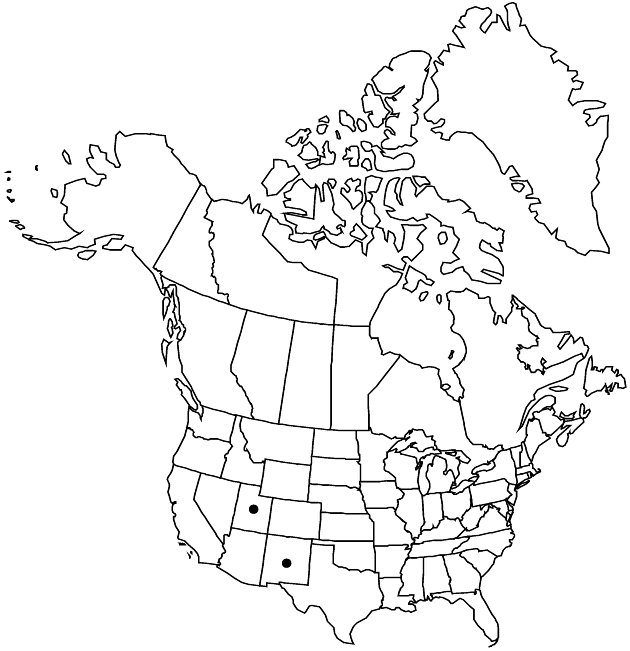Packera spellenbergii
Kew Bull. 47: 101. 1992.
Perennials, 3–6+ cm; fibrous-rooted and/or rhizomatous (bases coarse, weakly creeping or suberect). Stems usually 1, sometimes 2, densely tomentose (at least proximally), becoming glabrate distally. Basal leaves (relatively leathery) sessile; blades linear, 10–15+ × 1–2 mm, margins entire (revolute). Cauline leaves abruptly reduced (linear, bractlike). Heads 1(–2). Peduncles bracteate, tomentose or glabrate. Calyculi conspicuous. Phyllaries 13, purple to deep reddish purple, 6–9+ mm, hairy or glabrescent. Ray florets 0 or 5–8; corolla laminae 4–7 mm. Disc florets 30–40+; corolla tubes 2.5–3.5 mm, limbs 3.5–4 mm. Cypselae 3–3.5 mm, hirtellous; pappi 5–6 mm.
Phenology: Flowering mid Apr–mid May.
Habitat: Calcareous soils, sparsely vegetated areas of short-grass prairies
Elevation: 1600–2200 m
Discussion
Of conservation concern.
Packera spellenbergii is known only from Harding and Union counties, New Mexico, and Kane County, Utah. The plants are succulent, have deeply cyanic herbage, and conspicuously revolute leaves.
Selected References
None.
